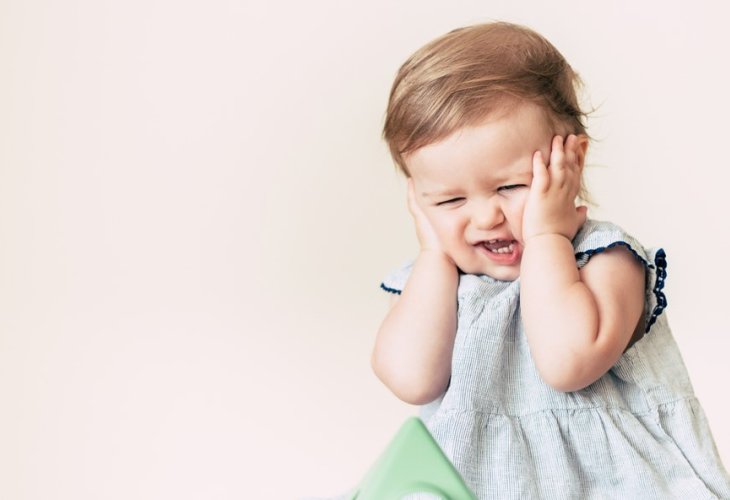Hearing Problems in Children? How to Identify Them Early
Today marks International Hearing Day. Here's how to identify hearing problems in children early and enable appropriate treatment.
 (Image: shutterstock)
(Image: shutterstock)Identifying hearing problems in infants and young children can be challenging, so it is essential to be aware of the signs that might indicate an issue. How can you identify a decline in hearing?
Normal hearing is crucial for developing communication and language skills in infants and toddlers, so it is important to be vigilant for any suspicion of hearing loss. A decline in hearing can affect language acquisition, speech clarity, academic potential, the development of social skills, emotional growth, self-image and self-confidence, concentration, and more. Therefore, if there is any suspicion of hearing loss in a child, it is recommended to seek a hearing test.
Hearing loss can be temporary or sometimes permanent; it can be a congenital condition or acquired during life. In honor of International Hearing Day, here are some things to watch for and the reasons for hearing loss in children:
What should you look out for?
- Lack of response to noises - Loud and sudden noises usually provoke an immediate bodily reaction, whether it's a startle, movement, or recognition of a familiar sound. Hence, if there is a lack of response, it may be a symptom of a hearing issue. Not every unresponsiveness is due to hearing loss, so it is important to seek a hearing test if concerns arise.
- Language and speech development difficulties - Infants up to one year old acquire language and communication based on hearing. Issues in language development may signal a hearing problem.
- Increasing audio volume on TV or computer - If your child requests to listen to the TV or computer games at high volumes, it is advisable to check their hearing.
- Learning difficulties - When your child cannot follow classroom activities and needs individual repetition, suffers from attention and concentration issues, or claims they did not understand what was said in class, it might be related to a hearing problem.
What can cause hearing loss?
- Fluid in the ears during childhood - The presence of fluid in the ears of infants and toddlers is a common and well-known phenomenon, and it is a very common reason for hearing problems in children. This condition can be diagnosed with a simple examination by a doctor.
- Genetics - If a hearing impairment is known to be hereditary, this might be the reason for hearing loss with age.
- Ear infections - Ear inflammation in children can lead to hearing loss and a sensation of blockage in the ears, typically affecting one ear. This condition usually resolves naturally within three months.
- Injury and head trauma - A severe fall or car accident that affects the head can also cause hearing problems.
- Prenatal causes - Hereditary issues, genetic problems, infections, or other reasons can lead to hearing loss.
Summary
When there is a suspicion of hearing loss, you should consult the treating physician. Based on the examination findings, they can recommend treatment and a hearing test if necessary. There are many and varied reasons for hearing loss, and after identifying the cause of the decline, a treatment plan can be established.
Hearing problem treatment can be medical, therapeutic, or surgical, and sometimes the solution involves rehabilitation using various amplification devices like hearing aids. For severe and profound hearing loss or unilateral deafness, cochlear implant surgeries can be suggested.
As mentioned, the causes of hearing loss are numerous, as are the treatment and rehabilitation methods. It is important to consult with a professional to receive guidance and an explanation regarding the hearing loss condition and the available treatment options. Rehabilitation should be accompanied by a professional to guide, lead, and support the parents and their child.
Nova Nakash, speech therapist at MedTechnica Orthophon, Med-El distributor.

